Although cancer can afflict dogs and cats of any age, even young and middle-aged cats, it is more likely to happen to older dogs and cats. It’s estimated that 50 percent of dogs and cats over the age of 10 will have cancer. Although the incidence of cancer in cats is estimated to be half of the incidence in dogs, tumours in cats are 3-4 times more likely to be malignant than in dogs.
While scary and upsetting, your pet’s quality of life remains a priority without change. Here’s how you can care for a pet with cancer to help them stay as happy and comfortable as possible:
A team effort
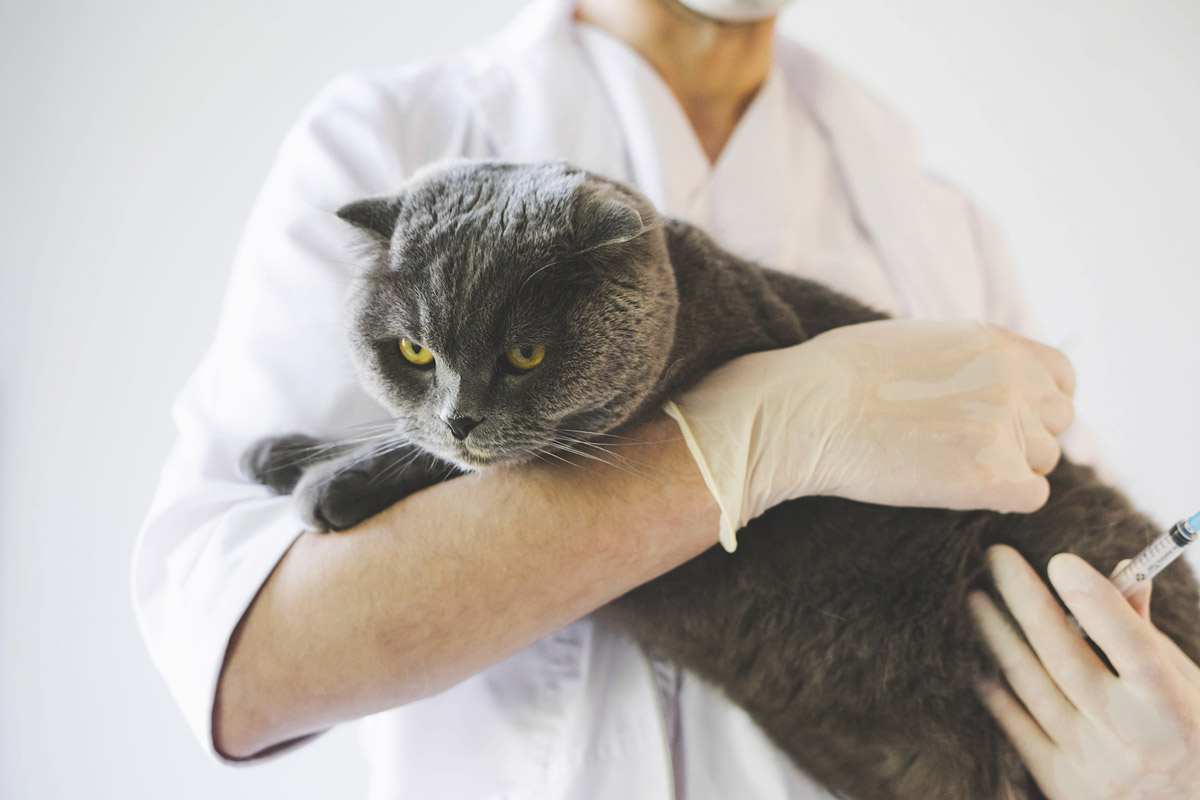
Caring for a pet with cancer is a team effort. The best quality care is only possible if the pet owner works closely with a trusted veterinary care team, which will provide all the necessary information, advice, and healthcare needed for the treatment and management of the disease.
Meanwhile, the pet owner is the primary caregiver involved in day-to-day tasks to provide supportive care, such as administering medicine, ensuring comfort by being able to recognise signs of pain, and preparing the nutrition that the pet needs.
Supportive care
Administering medication
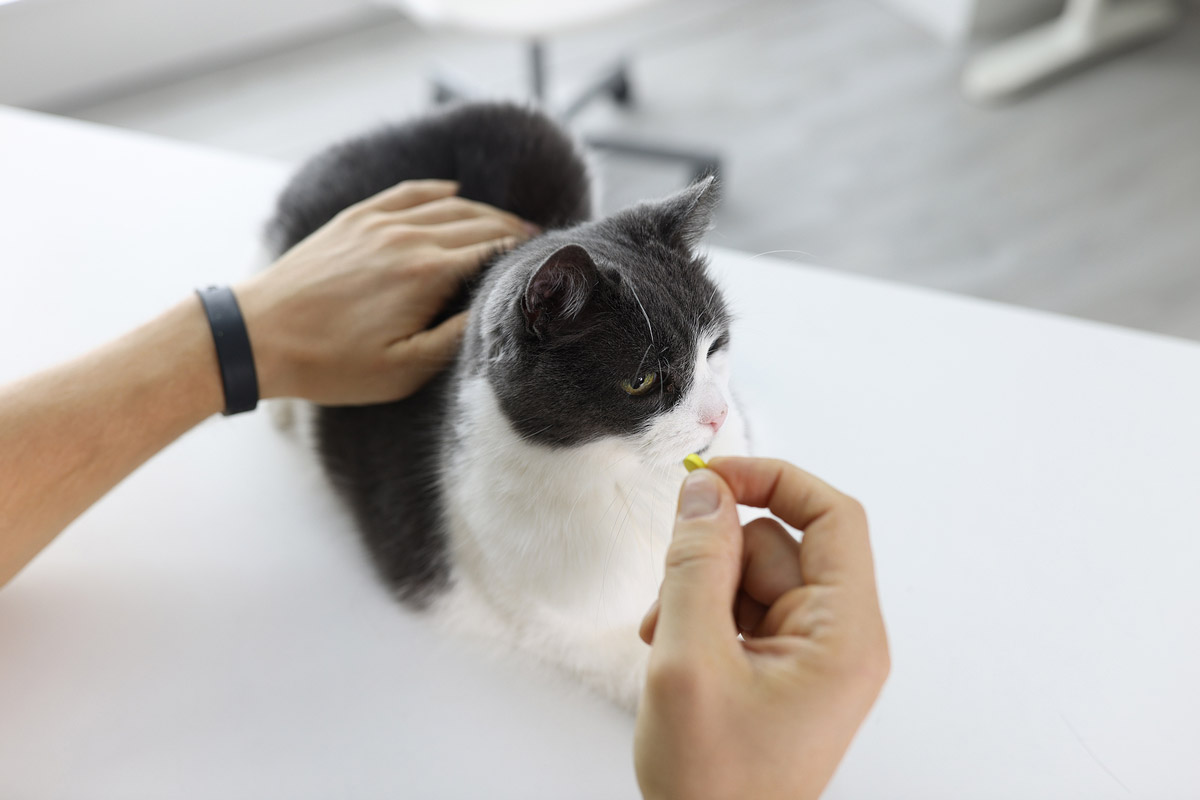
If your pet is undergoing treatment for cancer, there will be a variety of medications prescribed. These range from pain medication to ones that reduce the adverse effect of chemotherapy, radiation therapy, or drugs that help to destroy cancer cells.
Some of these medicines will be administered by veterinary professionals, while some will have to be taken at home. As the pet owner, you will play a crucial role in ensuring that your pet receives the correct dose of medicine on time. Dosage and timing are critical for effective treatment!
You will also have to monitor your pet’s behaviour and reaction to the medication on behalf of the veterinarian and report back if your pet is not responding as expected, so that the medication can be adjusted accordingly.
Recognising pain & ensuring comfort

Source: Tom Hills on Unsplash
As our precious pets are unable to speak our language and tell us about the discomfort that they are in — or even know what are the ways available to alleviate their pain — it is up to us to be vigilant and recognise even the most subtle signs.
In doing so, we can act on it to not only restore comfort as much as possible, but also provide our pet with the best fighting chance! This is because undertreated pain can lead to treatment failure, especially when it causes complications such as inappetence, aggravation of a lesion, and so on.
In order to be able to know when your pet is feeling pain, you will need to have a good understanding of your pet’s usual behaviour and habits. Be observant and pay close attention to your companion daily; when it starts acting out of character, you’ll know that it’s not feeling well.
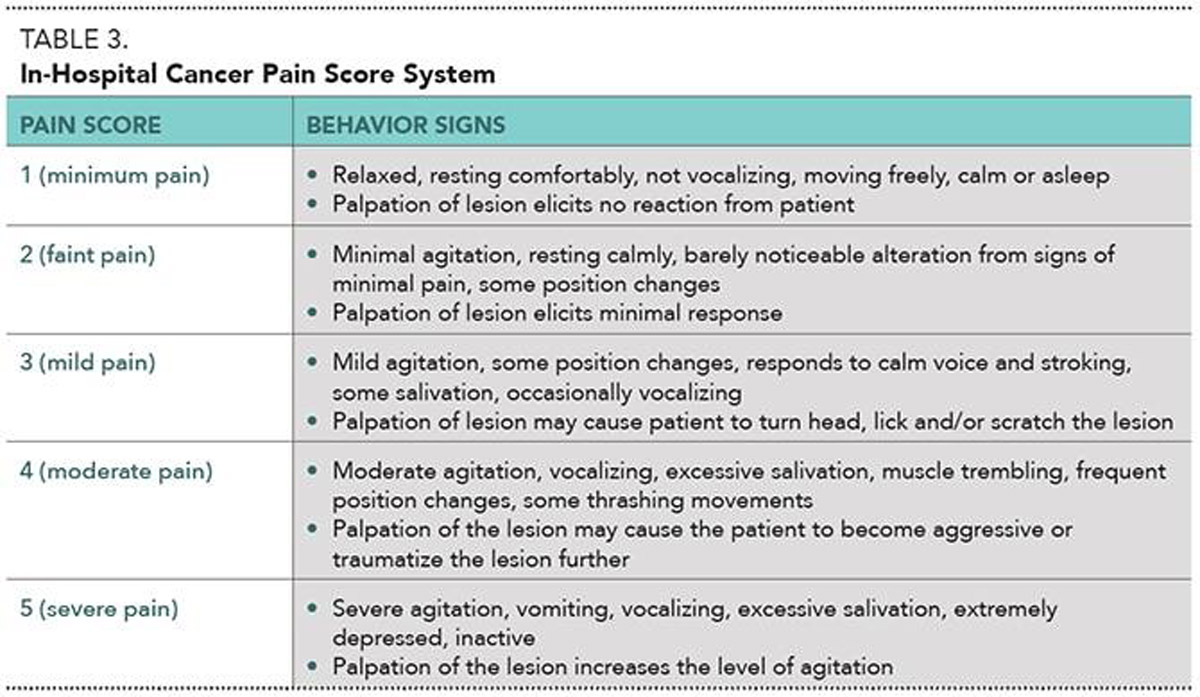
Here are examples of signs of pain — The Purdue Integrated Cancer Pain Score System, developed by professors from the Purdue University College of Veterinary Medicine
Source: Today’s Veterinary Practice
As for how to make your pet feel better, pain-relieving drugs will typically be issued to pets undergoing cancer treatment. However, most of these pain-relieving drugs such as nonsteroidal anti-inflammatory drugs (NSAIDs) or opioids may have side effects when used for an extended period of time, so it’s best to stick to a recommended dosage or schedule set by your veterinarian. Under no circumstances should you dose your pet with human pain medications such as aspirin, ibuprofen, and paracetamol as well, as these are known to kill dogs and cats.
It is also important to note that pain can transcend beyond being purely physical — your pet may be in emotional and psychological pain as well, so it’s best to always be there for your buddy, especially if it has always enjoyed company and affection.
Nutritional support

Good nutrition is extremely important in the battle against cancer. As of now, researchers are still studying the nutritional needs of animals with cancer, but there is a general consensus that animals undergoing cancer treatment may need different foods and different amounts of food as compared to healthy animals.
This is because cancer and cancer treatments can change your pet’s metabolism and affect your pet’s appetite, so ultimately, the end goal is to simply supply your pet with the nutrition it needs to fuel its normal bodily functions.
Ask your veterinarian about possible diet changes you may need to make, and find out more about appetite stimulants and medications that can help to encourage healthy eating behaviour. If your pet is not eating or drinking enough, it runs the risk of “wasting away” due to malnutrition and suffering from dehydration, so it’s up to you to find ways to prevent that!
Other important aspects
To further improve your pet’s quality of life, there are other important aspects of caring for a pet with cancer that include equipping your house with tools and products that help with pain, limited mobility, and incontinence. These can range from orthopaedic beds, pet ramps, and lift harnesses, to even a pet wheelchair!
If your pet’s cancer or cancer treatment is preventing it from completing its usual grooming routine (for example, it may have a tumour in its mouth), you will also have to take up that duty. Maintain regular grooming such as bathing, brushing, dental care, nail clipping, ear cleaning, and anal gland cells expression, if necessary. Always take note to keep its skin free from being soiled by urine and faeces as well, as these will lead to skin inflammation and infection.
Finally, make sure to provide comfortable bedding and shelter from draught, heat, and cold, as old cats and dogs are less able to regulate their body temperature. You will also have to prevent pressure sores from forming by repositioning your pet regularly (every 2 hours if possible) when it is lying down, and by helping it to stand up regularly.
Staying positive
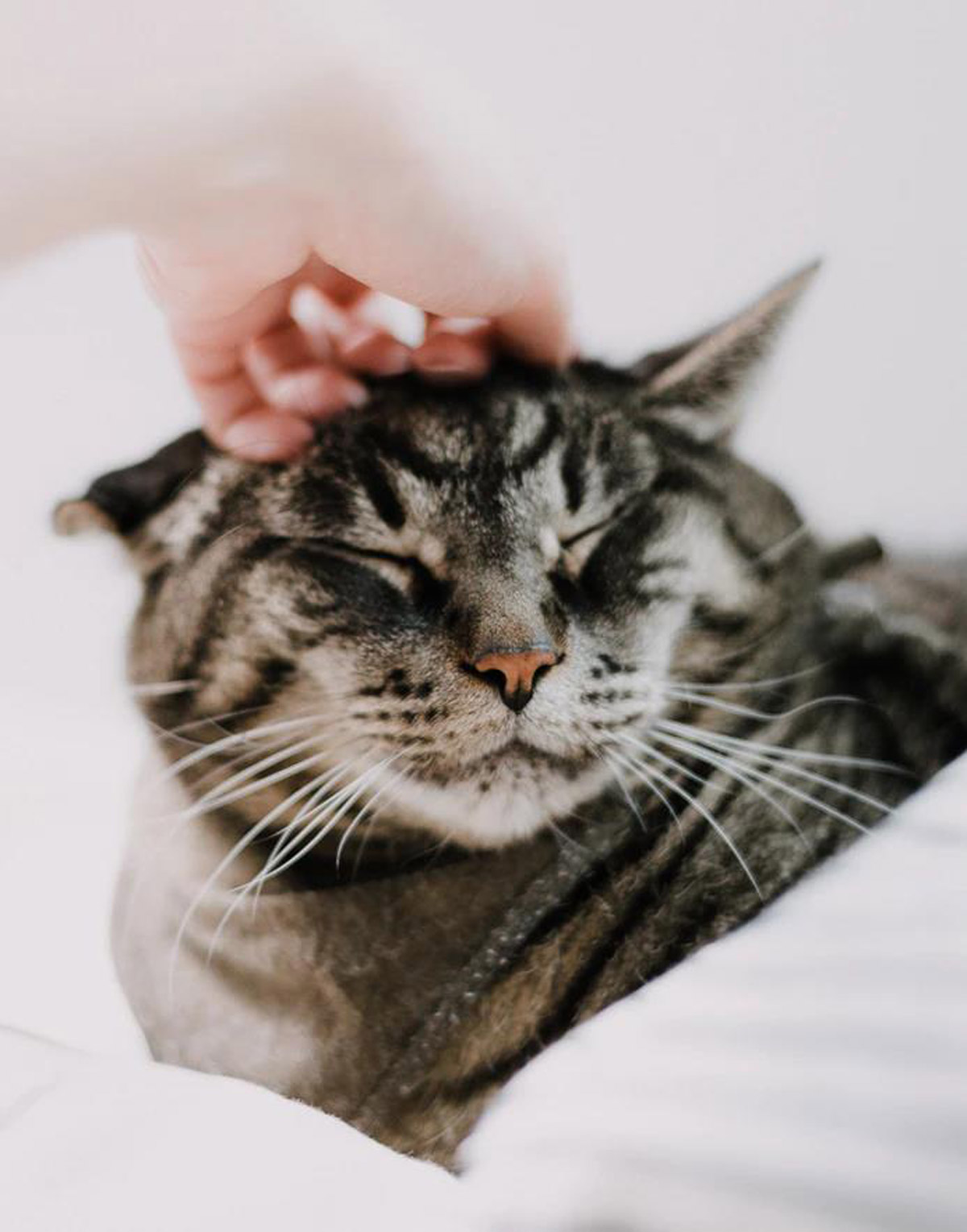
Source: Priscilla Du Preez on Unsplash
As heart wrenching as it may be, one more thing that we can do for our pet if it has been diagnosed with cancer is to focus on being happy when we’re around it. Our pets are way more in tune with our emotions than we think, especially dogs, so try your best to have as much fun as possible and avoid projecting your worries and sadness onto it!
Spend as much time as you can with your pet too, while in that positive headspace — being surrounded by love and care will provide a lot of mental and emotional support to your pet during this difficult time.
When to consider hospice care
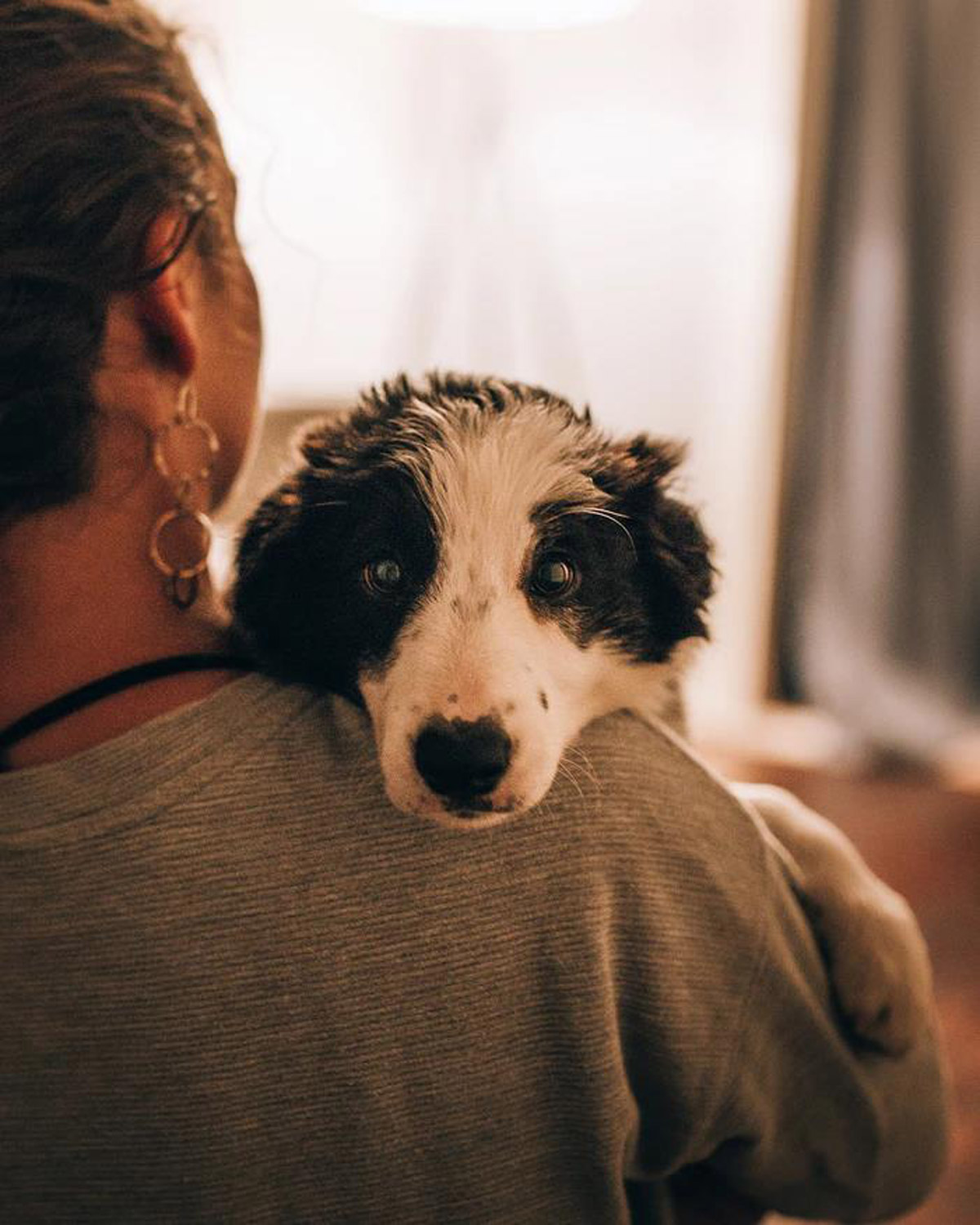
Source: Josh Hild on Unsplash
Also known as “comfort care”, hospice care for pets is to prevent pain and discomfort while providing emotional and physical support. It usually means giving up on treatment to focus on ensuring that your pet doesn’t suffer unnecessarily any more, such that your pet can live out its final days in as much peace and comfort as possible.
Some pet owners are faced with the tough decision of deciding if the continuation of the treatment for a potentially longer lifespan is worth the decrease in your pet’s quality of life because not all cancers can be successfully treated.
Usually, if a cure is unlikely or not possible, if treatments have been proven to be ineffective, or if the costs (such as the strain it puts on the pet) outweigh the benefits of the treatment, a pet owner may decide that it’s better to stop the treatment entirely and ensure that the rest of the pet’s life has minimal pain and discomfort.
In most cases, the best environment for comfort care is your home. It is a safe, stress-free, and familiar environment that won’t cause your pet additional anxiety and stress, it gives you and your family more time to spend with your pet, and it allows you to react quickly to your pet’s day-to-day needs.
However, because caring for a terminally-ill animal is an emotionally difficult and time-consuming responsibility that requires an increased level of care, do be prepared to be able to commit a lot of time to your pet (you may have to re-arrange your schedules constantly) and consult your veterinarian on a comprehensive comfort care plan. If necessary, you may also need to learn how to perform medical tasks such as giving injections.
Coping with cancer

Source: C. Z. Shi on Unsplash
Caring for a pet with cancer is no easy task, but take heart that there is a wide network of support for you to tap onto to guide you through this difficult time. This includes your family members and your veterinarian team, so please do not hesitate to reach out to them for help and advice, be it on how to care for your pet, or how to cope with grief.
As for pet owners with healthy, spritely animals by their side, vigilance is key — even if your companion seems to be in the pink of health, give your pet a once-over periodically to make sure that there are no recognisable lumps and bumps.
Other signs of possible cancer may include lethargy, refusal to eat or drink, dehydration, vomiting, diarrhoea, difficulties in breathing, and severe weight loss in a short time period. We’ll publish an article on how to recognise signs of cancer and a quality of life assessment, so keep a look out for that!
Remember, early detection reduces the chance of cancer spreading to other parts of the body and allows for better treatment and survival outcomes. Bring your pet for health check-ups at least once a year.
For more information on how to care for pets with cancer, The Animal Clinic is an AVS-registered veterinary clinic that has been caring for pets since 1979, with senior veterinarians that have a combined experience of more than 75 years of clinical practice and a team that is well-versed in the healthcare of not just cats and dogs but also small mammals, birds, and reptiles. Reach out to them at https://animalclinicsg.smart.vet/ or simply leave a direct message on their Facebook page and they will get back to you within 24 hours!
The Animal Clinic (Clementi Branch)
Address: Block 109 Clementi Street 11, #01-17/19, Singapore 120109
Tel: 6776 3450 / 6777 0273
After-hours emergency: 6333 5550
The Animal Clinic (Katong Branch)
Address: 55 Lorong L Telok Kurau, #01-63, Bright Centre, Singapore 425500
Tel: 6440 4767 / 6440 2336
After-hours emergency: 6333 5550
This article was written with the professional veterinary advice from Dr Lennie Lee of The Animal Clinic.










